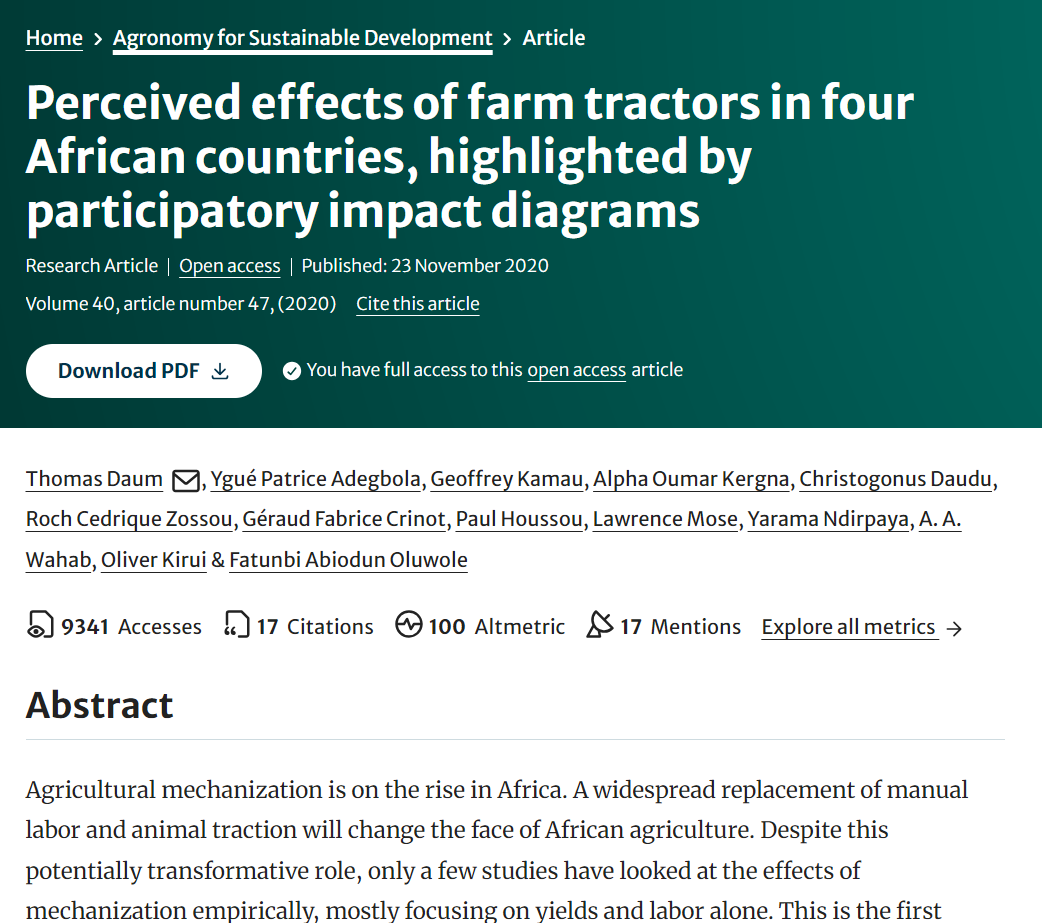Perceived effects of farm tractors in four African countries, highlighted by participatory impact diagrams
Abstract
Agricultural mechanization is on the rise in Africa. A widespread replacement of manual labor and animal traction will change the face of African agriculture. Despite this potentially transformative role, only a few studies have looked at the effects of mechanization empirically, mostly focusing on yields and labor alone. This is the first paper that explores perceived agronomic, environmental, and socioeconomic effects together, thereby revealing linkages and trade-offs, some of which have been hitherto unknown. Data were collected using a novel data collection method called “participatory impact diagrams” in four countries: Benin, Kenya, Nigeria, and Mali. In 129 gendered focus group discussions, 1330 respondents from 87 villages shared their perceptions on the positive and negative effects of agricultural mechanization, and developed causal impact chains. The results suggest that mechanization is likely to have more far-reaching agronomic, environmental, and socioeconomic consequences than commonly assumed. Most perceived effects were positive, suggesting that mechanization can help to reduce poverty and enhance food security but other effects were negative such as deforestation, soil erosion, land-use conflicts, and gender inequalities. Accompanying research and policy efforts, which reflect variations in local agro-ecological and socioeconomic conditions, are needed to ensure that mechanization contributes to an African agricultural transformation that is sustainable from a social, economic, and environmental perspective.

